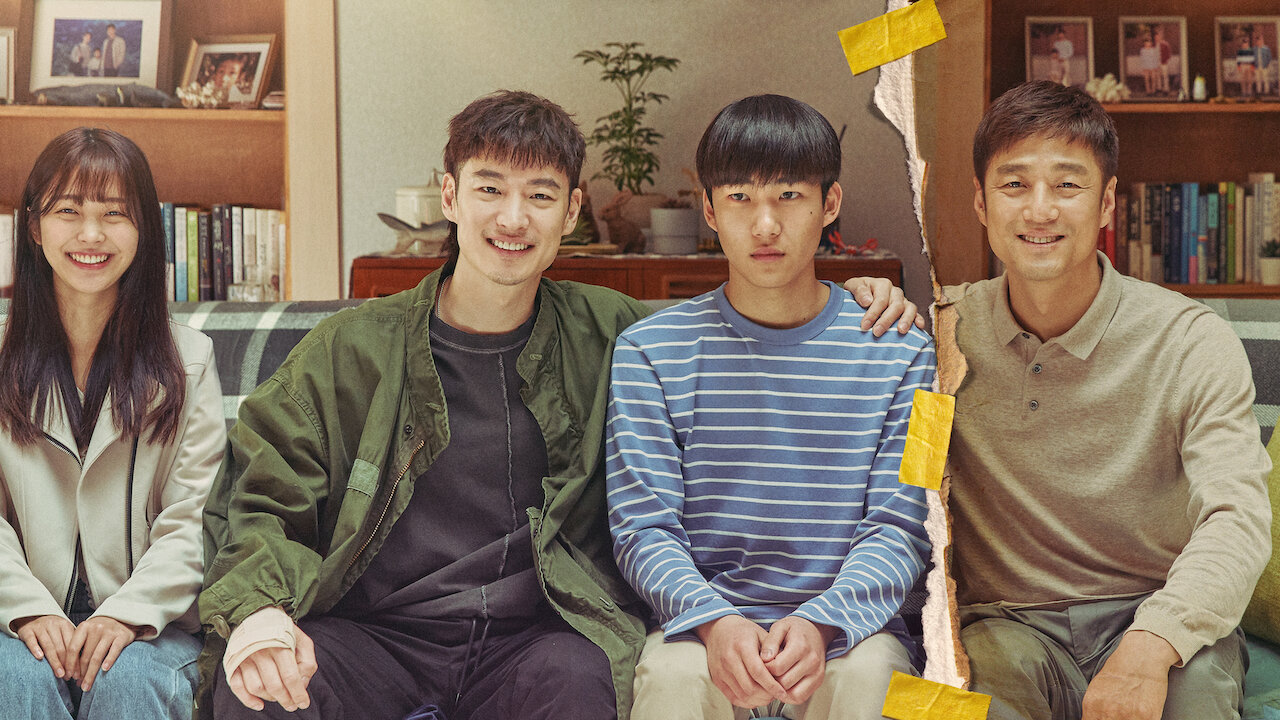
In South Korea, living alone—whether by choice or not—is on the rise. Consequently, dying alone has become more common as well. There’s even a dedicated term for it: godoksa. What happens after someone dies alone though, with nobody around to notice? Who cleans up the deceased’s affairs, and who remembers their life?
Released on May 14, 2021, Netflix Korean drama Move to Heaven tackles these questions with poignance and grace. The series features an Aspergic 20 year-old who works as a trauma cleaner—someone who tidies up the residences of those who die alone, or under tragic circumstances. Eschewing the romantic tropes and sappy tone of most mainstream K-dramas, Move to Heaven demonstrates a degree of social consciousness that bodes well as Netflix bolsters investments in Korean content.
A Final Move

20 year-old Han Geu-roo (Tang Jun-sang) is “special.” But as his father Han Jeong-u (Ji Jin-hee) reminds him, special is good, not bad. Geu-roo has Asperger’s Syndrome—he possesses a photographic memory and high intelligence, alongside an obsessive penchant for routine and difficulty grappling with emotions. These traits make Geu-roo an excellent assistant at his father’s business: a trauma cleaning company called “Move to Heaven.” As the Hans are called to scenes of lonely deaths or crimes, Geu-roo is able to maintain a sense of equanimity amidst the lingering trauma. At his father’s behest, he’s also learned to deduce narratives of the deceased’s lives based on what they leave behind—a skill that comes in handy as the show progresses.
Geu-roo’s world turns upside down when Jeong-u suddenly dies of cardiac arrest. Jeong-u’s will leaves Geu-roo in the guardianship of an uncle named Jo Sang-goo (Lee Je-hoon)—who’s an ex-con with a murky past. While at first reluctant to care for Geu-roo, Sang-goo decides to stick around after realizing he can gain control of Jeong-u’s considerable assets. There’s a catch though: Sang-goo must demonstrate that he can live amicably with Geu-roo for three months, and also work for Move to Heaven during this period. The series follows this odd family pair—who are also joined by Geu-roo’s female childhood friend Yoon Na-mu (Hong Seung-hee)–as they learn more about both humanity and themselves through a succession of trauma cleaning jobs.
Examining Social Issues through Trauma Cleaning

Korean dramas can have a reputation for formulaic plots and excessive focus on stars and romance. Fortunately, Move to Heaven doesn’t suffer from any of those ills. Similar to other Netflix-exclusive K-series like Extracurricular, the show only has 10 episodes instead of K-dramas’ usual 16-20 (which often leads to slow pacing and drawn-out melodramatic lovefests).
With these 10 episodes, Move to Heaven explores an impressive array of societal issues relevant to contemporary South Korea, and does so with a degree of nuance that brings tears without schmaltz. It feels a lot more like the meditative Japanese series Midnight Diner, and less like Boys Over Flowers.
For example, Move to Heaven’s first two episodes deal with solitary deaths—one of a young man who fell ill at home after a workplace accident, another of an older woman with dementia. With his Sherlock-esque photographic memory and intelligence at the ready, Geu-roo tidies up not only these individuals’ physical homes, but also their emotional and social affairs. He helps deduce the true circumstances behind the man’s death, and uncovers the woman’s unfulfilled wishes.
In a highly accessible manner, these stories highlight very real ills in South Korean society. Overwork and income inequality among young workers is rife, and a deterioration of Confucian norms (among other factors) is leading more older Koreans to die alone. Rather than rattling off statistics, Move to Heaven puts faces to bring these tragedies, perhaps ironically, alive.
A Celebration of Diversity

However, Move to Heaven also highlights non-solitary deaths. This is an intriguing choice. The series was initially inspired by an essay called “Things Left Behind,” written by a real trauma cleaner named Kim Sae-byul. According to reports by Korea media, Kim seemed to focus more on solitary deaths of individuals with mental illnesses, which manifest in behaviors like hoarding.
The creators of Move to Heaven likely figured that focusing only on such solitary deaths would blunt the show’s appeal and creative potential. While it’s unfortunate that the series doesn’t dive more into mental illness, this departure from Kim Sae-byul’s source essay bears fruit overall. Move to Heaven is able to highlight an even larger array of societal issues like domestic violence and LGBTQ discrimination, and better reinforce the diversity of life—and death—that humans possess.
In fact, celebrating diversity is Move to Heaven’s biggest strength. Through its leads and each of the deceased, the show destigmatizes trauma, and emphasizes that “different” can be beautiful instead of bad. The show does this by imbuing each of its characters with agency, rather than fetishizing them or infantilizing them as victims. In a rather meta fashion, Geu-roo’s Asperger’s becomes a huge asset in this regard. Unable to express emotive sympathy for the deceased, he gives them something much better: respect. In a world filled with the performative sympathy of “thoughts and prayers,” this is a massive respite.
By repeating the same love triangles, skincare product placements, and knights in shining armor, “traditional” Korean dramas aren’t just formulaic—they can also reinforce non-pluralistic ways of thinking. Alongside players in Korea’s entertainment industry, Netflix seems to have a desire to invest in content that caters to audiences’ maturing tastes for nuance and pluralism. With shows like Itaewon Class and Extracurricular, Netflix K-content has started to tackle issues like trans representation and teenage bullying. Move to Heaven joins those series on a positive trend; hopefully we can look forward to more that follow in their footsteps.
• • •
Move to Heaven is now streaming worldwide on Netflix. This article was based on the first five episodes of the series.
